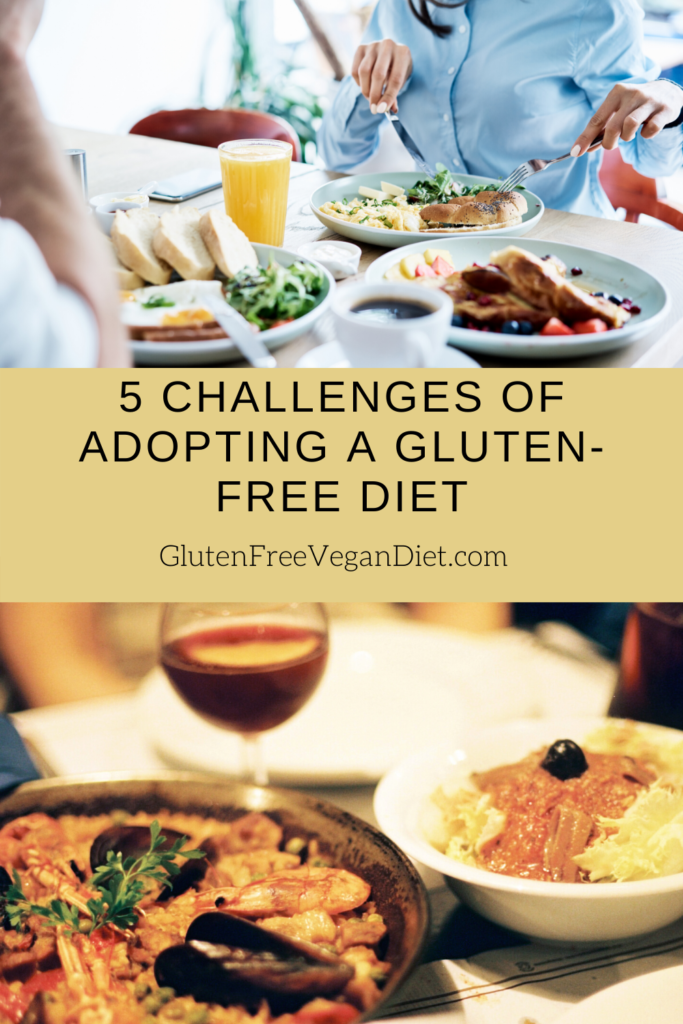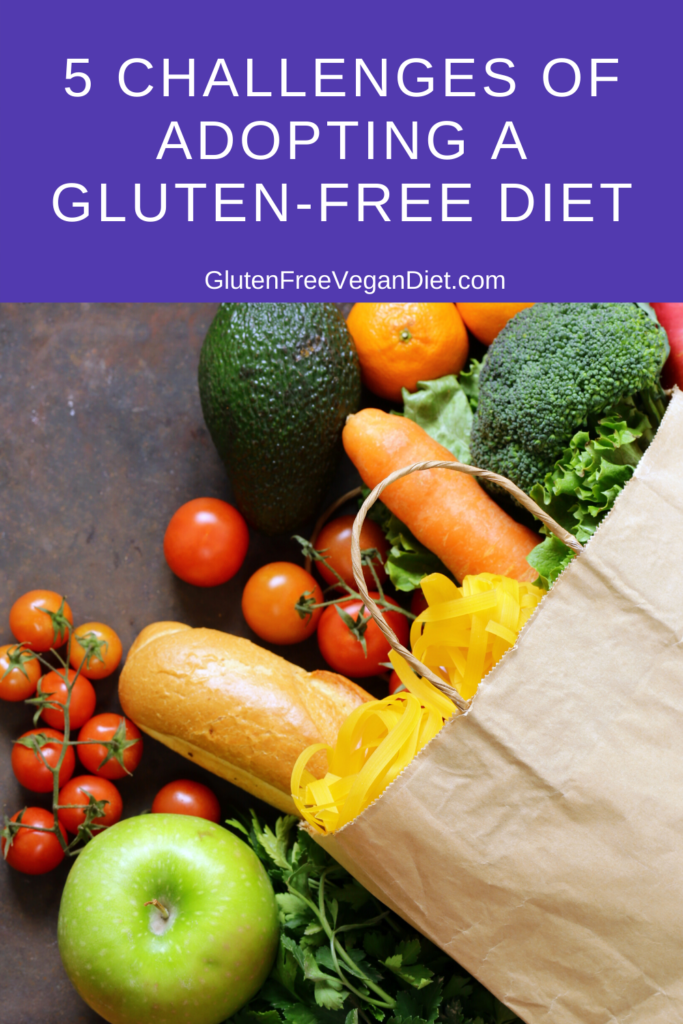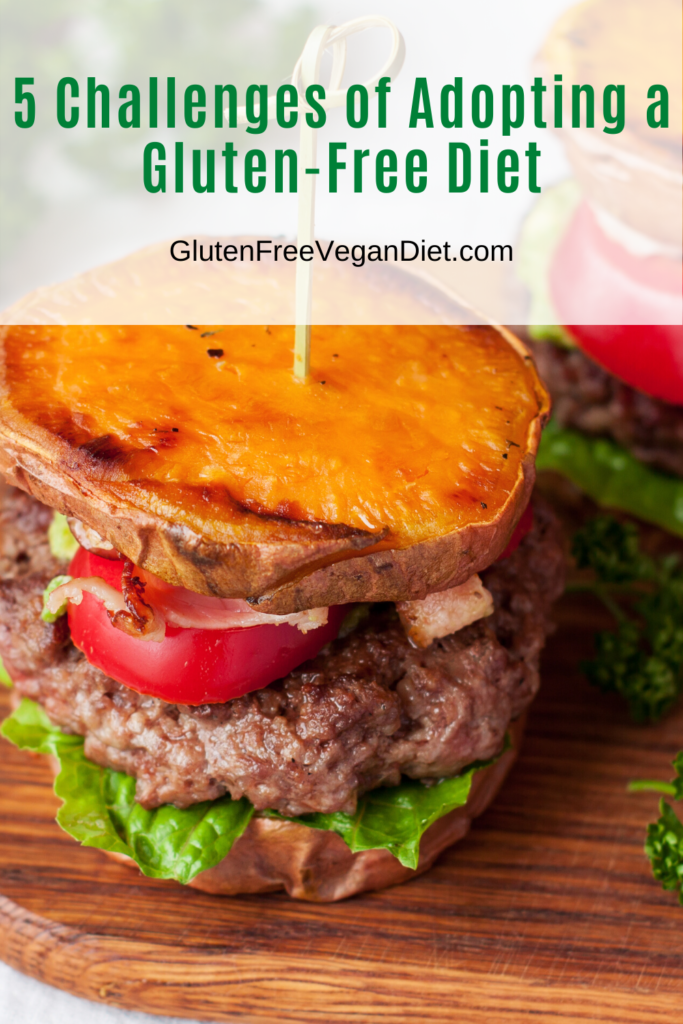Like anything else you do in life, when you start something new, you will face challenges. That even applies to adopting a gluten-free diet. Perhaps you are starting the diet because you’re gluten intolerant or wheat sensitive, or maybe you’re just trying to live a healthier life and even lose weight.
Whatever the case may be, you’ll encounter one or several of the challenges listed below. Knowing what they are will help you be aware of them when they arise, and you’ll know how to overcome them.

- Adopting the diet into your lifestyle
Just like any diet you start, there is going to be a transition phase where you need to grit your teeth and have self-discipline and just get through it. If it’s the Keto diet or any low carb diet, you’ll need to drastically cut your carbs. If it’s the paleo diet, several foods such as sugar and refined oil are no-nos.
With the gluten-free diet, you’ll need to avoid foods containing gluten. Just knowing what these foods are will be half the battle. You will need to do your research and understand which common foods you are consuming may contain gluten. Ketchup for example or even soy sauce.
Initially, you may find it difficult to give up several of the foods that you’re accustomed to eating such as burgers (because the buns contain gluten) and ice-cream, cakes, cookies, and donuts etc. If you want to keep eating these things, you will need to find gluten-free substitutes to eat and that can be somewhat difficult. This period alone is somewhat inevitable and can be challenging. - Nutrition deficiencies
When people give up too many foods during a diet, especially so many things containing gluten, nutrition deficiencies can come up. While avoiding gluten in their diet, they also inadvertently do not get various vitamins and minerals the body needs.
The best way to get around this problem is to get a multivitamin that contains a variety of vitamins such as vitamin A, vitamin D, iron, fiber, etc. The supplements will have to pick up the slack created by the eliminate of foods in the diet. - The risk of cross-contamination
If you’re the only gluten-sensitive person in the house, the rest of your family members may not be on a gluten-free diet and eating things you can not eat. That will mean the risk of cross-contamination is higher in your household.
For example, if your spouse uses the bread knife to spread the butter on her bread, she may unknowingly leave minute crumbs on the butter. If you use the same butter on your gluten-free toast, the crumbs that contain gluten will enter your system and you’ll feel the effects later.
So, having separate utensils, cookware, and even special meal preparation areas may be necessary. It goes without saying that all of this precautions requires extra effort and it can be challenging at times to have to make special arrangements just to maintain a gluten-free diet around people who can eat anything they want. - Gluten sneaks into the diet
In case you didn’t now, Gluten doesn’t only appear in foods. It’s a very common and highly versatile ingredient. Because of its viscoelastic nature, it is often found in a wide variety of other things. For example, lick a stamp to use it on a letter? Guess what? The adhesive side may contain gluten. Most people have no idea gluten shows up this way.
Using lipstick? It may contain gluten too. Since it sneaks into many products, being extra vigilant is imperative so that you can ascertain where the gluten is coming from. Even shampoo and conditioner can have gluten unless you specifically use something that is gluten-free. - Eating out is a hassle:
When you must avoid gluten in your food, it becomes quite difficult to eat out because in most cases, you are not in control of the food preparation or the ingredients that go into the food.
Sure, you can give the chef special instructions, and ask many questions about ingredients but sadly, cross contamination can occur.
In some cases, the restaurant may not even be able to prepare dishes according to your requirements because they don’t have room to have a dedicated area to gluten-free meals preparation.
So, you may find yourself limited in the places you can find gluten-free meals. If you’ve been through this, you know how this can put a damper on eating out with friends. It can be quite difficult. You either don’t eat much, ask a million questions, or you take a chance you get glutened.

Sadly the challenges listed above are very real, quite common and encounters those who must eat the gluten-free diet must live with daily. Depending on your reasons for choosing to follow this particular diet, it may be crucial to your health you be 100% gluten-free. Or perhaps, you are one of those who can be more flexible every now and then if you’re not severely gluten sensitive.
If you must adhere to a diet free of gluten, try to maintain a positive attitude and accept this new way of life and lifestyle. Once you get familiar with foods and products you must avoid, you’ll find it easier to avoid the foods you can’t eat and find things that satisfy your appetite.

I you have enjoyed this article, leave us a comment below. You can also contact me with any questions or comments you may have.

